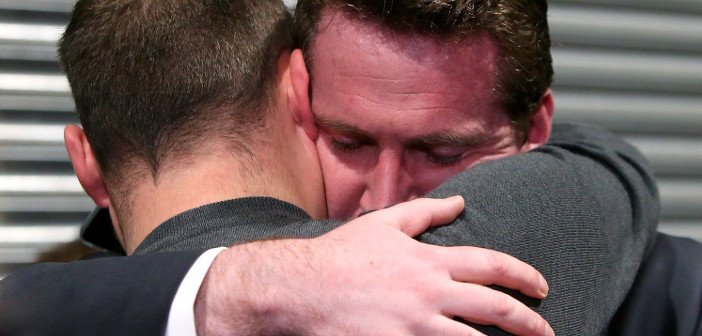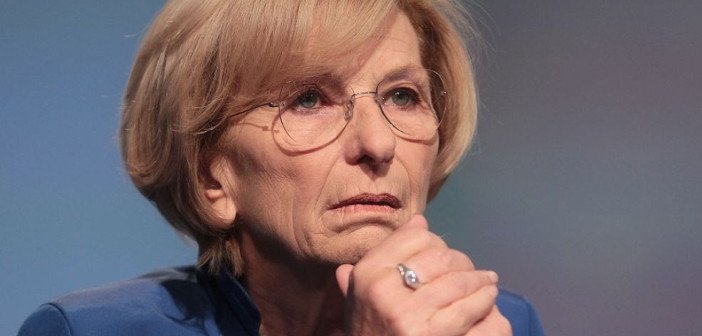Pro Choice Groups won’t ‘Say Goodbye’ to #Repealthe8th
Last week, the general election happened. In a shocking twist of events, lots of people voted Fianna Fail, giving them the second highest number of seats after Fine Gael. In a not so shocking twist of events, Labour lost a vast amount of support. They were left with just seven seats, and the near possibility of no speaking rights after Minister Aodhán Ó Ríordáin was eliminated two days ago.
Following the party’s poor performance in the election, many expressed concern for this Fine Gael/Fianna Fáil dominated government. Despite a substantial amount of Independents being elected, and more women than ever taking seats in the chamber, the impossibility of a Labour coalition seems to have left more than a few people uneasy about what Minister Ó Ríordáin calls the government’s “value system.” Will the push for drug legislation reform be scrapped by the next government? Will the fight for full travellers’ rights by ignored from here on out? And of course – the question that’s taken social media by storm – is the repeal the eighth movement dead in the water?

The answer to that last question, put simply, is no. Sure, the Labour Women’s Commission vehemently supported full body autonomy for all Irish women. Yes, Labour did promise to bring the Eighth Amendment to a referendum had they remained in power. But they didn’t, so they can’t. However, the poor performance of one political party doesn’t mean that repealing the eighth has become an overnight impossibility, and it certainly doesn’t mean that the fight for reproductive rights and healthcare will end here.[pullquote]The poor performance of one political party doesn’t mean that repealing the eighth has become an overnight impossibility, and it certainly doesn’t mean that the fight for reproductive rights and healthcare will end here.[/pullquote]
Not dissimilar to the marriage equality campaign, the push for legal abortion services in Ireland started as a grassroots movement – one that began years ago, outside of the political sphere, supported solely by the people and the groups who made it their priority to ensure that these laws were changed. To claim that either of these movements exists entirely due to government support not only disregards the thousands of people who are dedicated, tireless campaigners of various human rights issues, but also suggests that the public have little interest in these matters until otherwise encouraged to do so.
The idea that Irish people have no desire to put the eighth amendment to referendum is simply not true. Nor is the idea that supporters, campaigners, and lobbyers can’t make that happen. Italy decriminalised abortion in 1978, allowing Italian women (outside of Vatican City) access to free, safe and legal terminations up until the third month of their pregnancy. This change in legislation was achieved by a group of committed women and one minister, Emma Bonino, who fought for reproductive rights after it was revealed that illegal abortions were the third-biggest cause of death for women in Italy at that time.

Spain faced a similar threat to women’s health just two years ago, when their conservative Popular Party introduced draft legislation to further restrict the country’s abortion services. Following reports that women would only be allowed to request terminations in cases of rape, or if the pregnancy was affecting the mother’s health, Spanish pro-choice groups staged mass protests eventually forcing the government to withdraw their proposed bill.[pullquote]Following these reports Spanish pro-choice groups staged mass protests eventually forcing the government to withdraw their proposed bill.[/pullquote]
Both of these instances not only prove that people do have the power to incite change, but also that two staunchly Catholic countries were able to either give their women access to abortion services, or force a conservative government to abandon a restrictive and harmful bill.
Even here in Ireland, Enda Kenny did somewhat of a u-turn when he announced that an “expert group” chaired by an “appropriate woman” (whatever that means) would be established to inclusively debate the country’s abortion laws. According to Kenny, the issue has “divided Irish society and polarised it on a number of occasions.” This statement – coming from a man who is firmly anti-choice, and who has expressed his aversion towards “abortion on demand” on more than one occasion – suggests that people do have the means to provoke change… Even if the people’s government appears vehemently opposed to it.

Following reports of election exit polls last week, the Coalition to Repeal the Eighth Amendment released a statement in which they declared that the “32nd Dáil will ignore abortion at its peril.” Convenor of the Coalition, Ailbhe Smyth, asserted that sidelining the eighth amendment is no longer an option for the government, and that this “political cowardice” needed to stop.
The issue has not gone away and will not go away while 4,000 women and girls are leaving this country every year for abortion services abroad. Since polling day another 40 women have been forced to make that journey. That’s not acceptable in a modern democracy.
Labour may not be leading the 32nd Dáil, but that doesn’t mean that the Irish people will stop leading the fight for abortion rights. They’ve been doing it themselves for years, after all.
